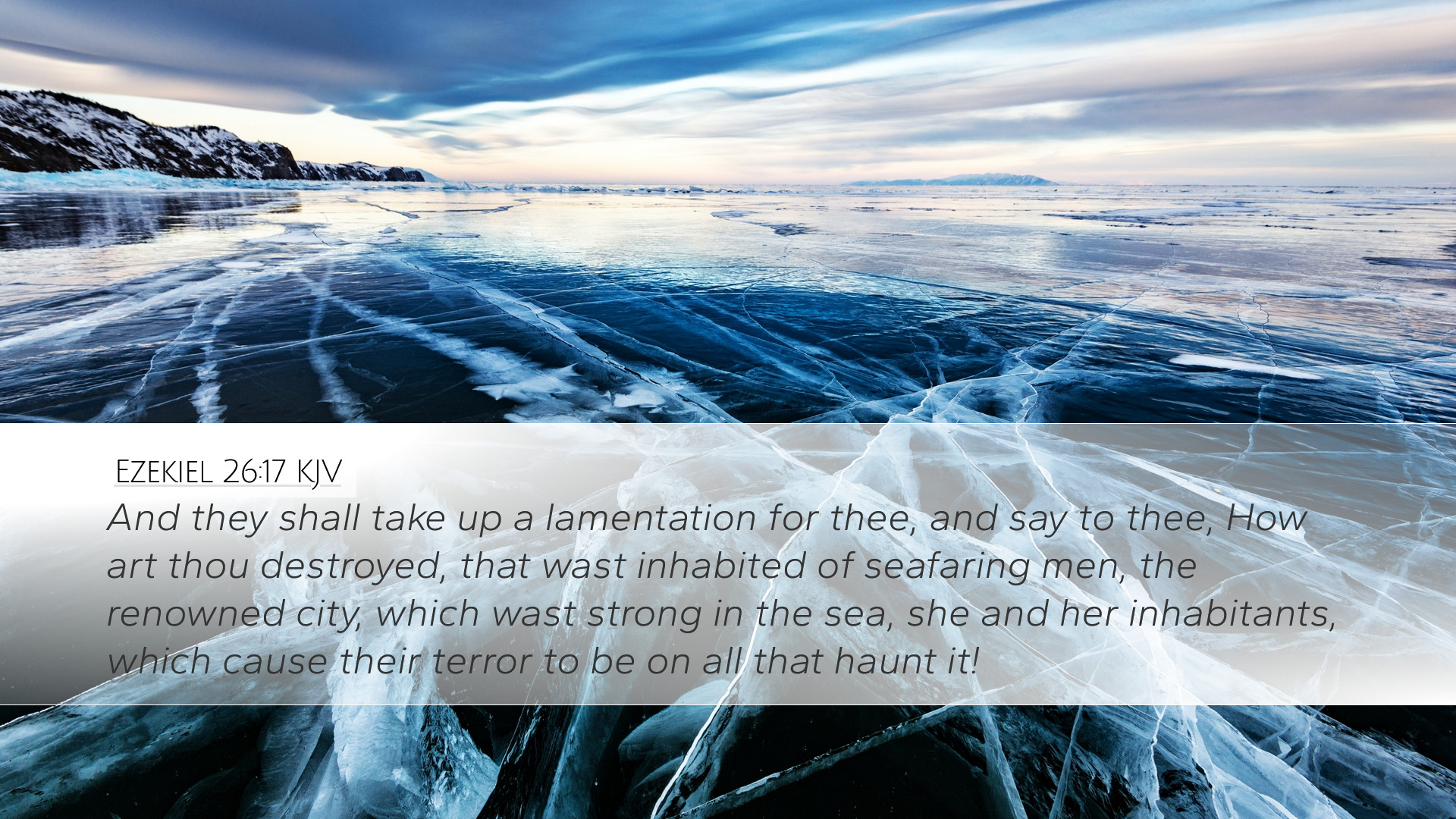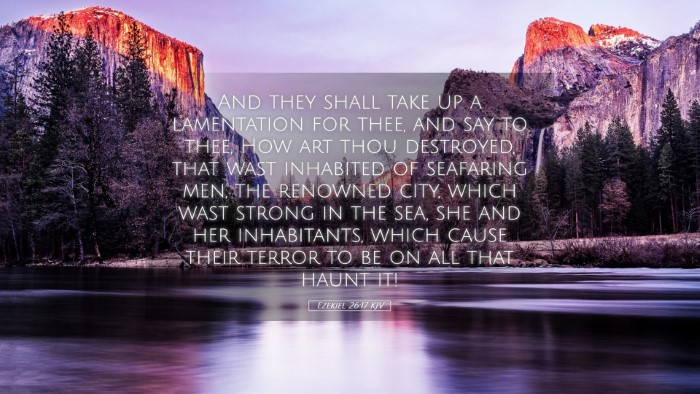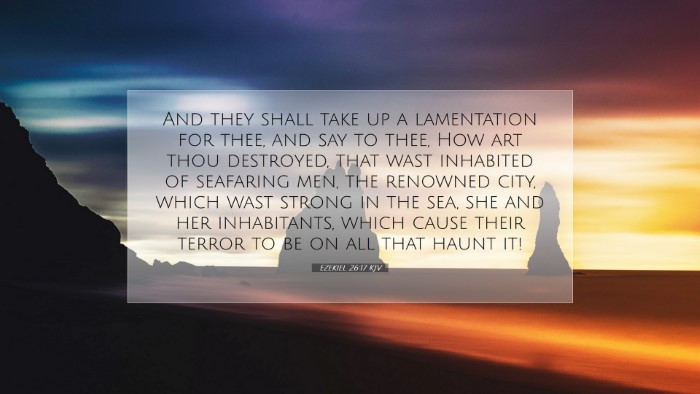Commentary on Ezekiel 26:17
Ezekiel 26:17: "And they shall take up a lamentation for thee, and say to thee, How art thou destroyed, O thou that wast inhabited of seafaring men, the renowned city, which wast strong in the sea, she and her inhabitants, which caused their terror to be on all that haunted it!"
Introduction
The prophecy of Ezekiel 26:17 speaks to the fate of Tyre, a city renowned for its commerce, wealth, and maritime prowess. Through this verse, Ezekiel not only relays a message of impending doom but also captures the complex relationship between Tyre's grandeur and its eventual desolation. This section draws upon the insights of prominent public domain commentators including Matthew Henry, Albert Barnes, and Adam Clarke, aiming to elucidate the theological and historical significance of this verse.
The Lamentation for Tyre
This verse emphasizes a future lament by various nations over Tyre's destruction. Here, we can discern several layers of meaning:
- The Role of Lamentation: The invocation of lamentation signifies the recognition of loss, not just of a city but of a significant socio-economic entity. Matthew Henry notes that such lamentations reflect a profound loss, as Tyre was historically a hub of trade and culture.
- Seafaring Identity: Tyre is described as inhabited by "seafaring men," which underscores its maritime dominance. Albert Barnes highlights that the city was built on the coast and was known for its powerful fleet. The lament thus reflects the impact on those who relied on its commercial strength.
- Renowned City: Ezekiel's depiction of Tyre as a "renowned city" points to its historical significance, implying that the destruction would echo far beyond its walls. Adam Clarke elaborates on this by discussing Tyre's connection to various nations and its influence over trade routes.
Theological Implications
Tyre's lament is not merely the mourning of a city but serves as a theological statement about divine judgment. Here are some key reflections:
- Divine Judgment: The lamentation indicates God's judgment against those who have become arrogant and relied on their strength rather than humility before Him. Henry emphasizes that cities or nations that swell with pride are destined for downfall, serving as a reminder to all about the precarious nature of human achievements.
- Global Impact of Judgment: The response of other nations in this lament signifies that God's judgment has global repercussions. Barnes points out that Tyre's fall would unsettle economies and alliances, further illustrating the interconnectedness of human affairs.
- Hope for the Future: Although judgment may seem severe, it often points toward restoration and redemption. Clarke argues that the fall of Tyre prepares the way for a new era where God's sovereignty is recognized above human endeavor.
Historical Context
Understanding the historical backdrop of Tyre enhances the interpretation of this prophecy:
- Tyre’s Prosperity: Tyre was a Phoenician city located on the east coast of the Mediterranean. Its wealth came from trade, especially in purple dye and other luxury goods. This opulence generated a sense of invincibility, a theme highlighted by Henry.
- Conflict and Conquest: The prophetic words against Tyre are set against the backdrop of rivalries with Babylon and other powers. Barnes notes that Nebuchadnezzar’s siege is seen as a fulfillment of Ezekiel’s prophecy, reinforcing the idea that God uses earthly rulers to execute divine will.
- Symbol of Oppression: Tyre's role as a facilitator of trade often linked it to oppression of neighboring nations. Clarke notes that the lamentation not only reflects grief over loss but also challenges the practices that had led to its downfall, emphasizing moral and ethical considerations.
Conclusion
Ezekiel 26:17 serves as a powerful reminder of the transient nature of human pride and the consequences of turning away from divine principles. The lamentation that arises from the destruction of Tyre encapsulates a broader message about accountability, the intertwining of judgment with mercy, and the ultimate sovereignty of God over all nations. It speaks not only to the people of ancient times but resonates profoundly within contemporary discourse on justice, pride, and the international community's interdependence.


